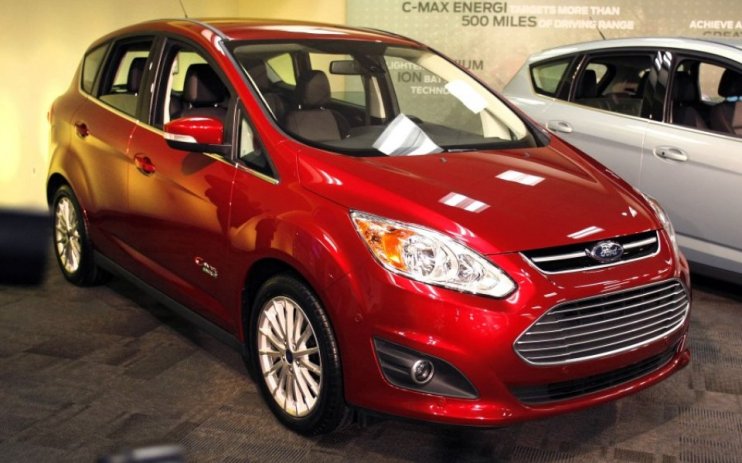Insuring electric vehicles is hugely expensive – and that might not change soon

Insurers are facing a major dilemma over how to handle the huge cost of covering electric vehicles.
Soaring repair fees, particularly of damaged battery packs, and a lack of appropriately trained mechanics have led experts to warn that greener cars risk effectively becoming uninsurable.
Current estimates suggest EVs cost around a quarter more to fix than typical combustion engine makes.
As the automotive industry banks on EVs ahead of looming emission targets and European bans on the sale of petrol and diesel cars, the problem has become a major roadblock to the green transition. Should prices fail to come down, consumers will be disincentivized in making the switch at a critical moment.
What’s more, some insurers have begun pulling out of their coverage of certain models.
In the most well publicised example to date, John Lewis’ underwriting partner Covea in October paused customers renewing or taking out new policies for battery-powered vehicles, amid a review into costs.
With 2023 soon coming to a close, the industry has as yet failed to come up with a clear solution. The hope is that growing EV market share, an increase in the supply of parts and more skilled mechanics would see costs “reduce,” Jo Lloyd, customer and propositions director at AXA UK retail, told City A.M.
But none of that has come to pass as of today and growth in EV sales has slowed in the latter part of the year.
Nor does it solve a host of technology-related barriers, most often involving repair, which have hiked costs and blocked uptake.
“At this early stage of EV adoption, repair and maintenance capabilities are playing catch up – an issue that is most pronounced in the context of returning value from HV batteries,” Mark Fry, engineering manager at Thatcham Research, which is funded by the industry to investigate motor vehicle risks, said.
Insurance is priced based on risk and claims for EVs are approximately 25 per cent more expensive and repairs take roughly 14 per cent longer than their ICE equivalents – which can impact premiums.
Trade body the ABI defends the higher cost of EV insurance
“These are a disproportionately expensive component and while there are no methods available for diagnosis and / or repair, insurers must make the uneconomically viable decision to replace the battery.”
Experts think vehicle manufacturers should begin building repairability into the design, simplifying the repair process and improving the claims chain. Fry noted that while some were making “proactive investments” in repair and maintenance capabilities today, which augurs well for EV adoption,” more solutions are “urgently required.”
Electric vehicle premiums spike
The EV dilemma comes as inflation pushes up car insurance premiums to record levels across the board, to the point many buyers are now factoring in the cost of cover when making a purchase.
And if more and more insurers opt out of coverage, premiums for EVs would likely rise even further. “With electric vehicles insurance prices rising at a particularly rapid rate, it is likely that people are being put off making the switch to electric because they don’t want to be saddled with four-figure premiums and a reducing number of brands offering EV policies,” Kevin Pratt, car insurance expert at Forbes Advisor, told City A.M.
The jury is out over what this all means for the future of EVs, according to experts. Pratt said that “coupled with the government’s decision to push back the ban on petrol and diesel cars” to 2035, “eye-popping prices” would “rob the movement… of what modest momentum it had built up. We won’t be going green for a while yet.”
One other solution posited is market intervention from government on insurance premium tax, a charge levied at a flat rate of 12 per cent of cost of coverage.
“If the government were to reduce or even remove it from EV premiums – with perhaps a smaller reduction for hybrids – it would make a significant dent in gross premiums currently being charged,” Pratt said.
Unlikely ahead of a general election, any tax cut would be unpopular with the majority of motorists, the lion’s share of whom still use combustion engine cars.
A spokesperson for the Association of British Insurers (ABI), said: “Insurance is priced based on risk and claims for electric vehicles are approximately 25 per cent more expensive and repairs take roughly 14 per cent longer than their (combustion) equivalents – which can impact premiums.”
The ABI is calling for government intervention to “fund, facilitate and retool the repair” sector to “ensure it can cope with an increasingly electrified fleet and growing demand.”
Training and reskilling automotive technicians is of particular concern. According to the Institute of Motor Industry (IMI), 39,000 UK mechanics are now EV-qualified. Even though this figures has been stedily increasing, they estimate there could be a shortage of around 16,000 EV-qualified mechanics by 2032.
“The motor insurance market remains competitive with cover for electric vehicles available from a wide range of providers. Whether to offer insurance, and at what price, is a commercial decision for individual insurers based on their risk appetite,” the spokesperson added.
Both Aviva and LV did not respond to a request for comment.